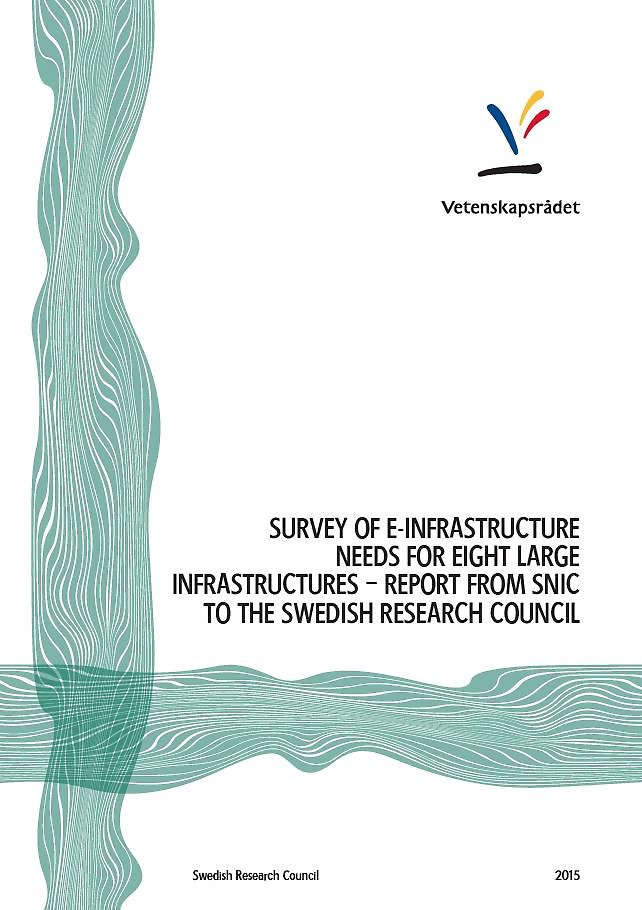Survey of e-infrastructure needs for eight large infrastructures
Report from SNIC to the Swedish Research Council
Well functioning e-infrastructures, such as digital communication, storage and computing capacity, together with human resources to aid in the usage of these infrastructures, are a prerequisite for most scientific disciplines today; both to support research projects and as a basis for other research infrastructures. The demand for supporting e-infrastructures is high and it is expected to increase further, both in terms of ‘more of the same’ and new services. This was clearly described in a previous report from Vetenskapsrådet in 2013, Science cases for e-infrastrcuture, which presented a diverse set of science cases and pointed to potential breakthroughs that can be made if sufficient supporting e-infrastructures are available.
Data generating research infrastructures have turned out to demand substantial supporting e-infrastructure, which in turn poses new challenges on the service providers. The Council for Research Infrastructures (RFI) invited SNIC to survey the expected requirements for e-infrastructure services from this particular user group. The resulting report focuses on needs reported from eight large infrastructures. The report estimates costs for data operation and data handling and offers RFI and other stakeholders guidelines for strategic planning.
MORE WITHIN THE SAME SUBJECT AREA
-
Article |
Published 8 April 2024
Are you doing research in computational science? Then you can apply for access to Swedish and European computational resources at NAISS and EuroHPC. Here you can read more about how to do this.
Keywords:
-
Infrastructures |
Published 25 March 2024
ArchLab is a distributed research infrastructure that coordinates a number of laboratories that use natural science methods to tackle archaeological questions. The infrastructure is under construction and is coordinated from Umeå University.
Keywords:
-
News |
Published 12 February 2024
The Government is making a change to the Swedish Research Council’s instructions, which means that we can fund research infrastructure of national interest for a longer period, extending from the current 6 years to 10 years. The purpose is to improve...
Keywords:




